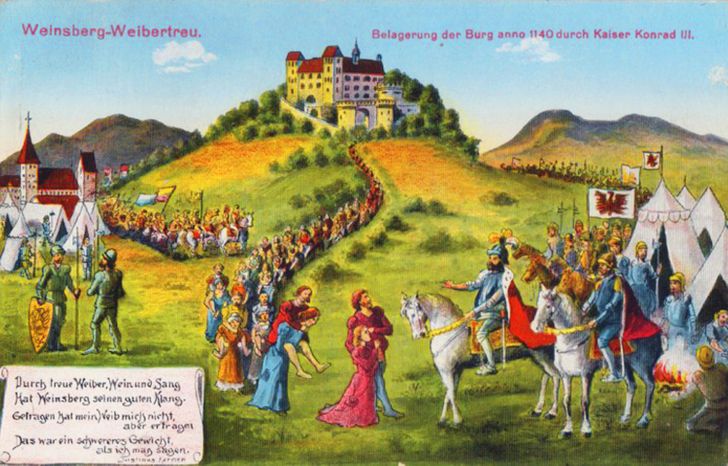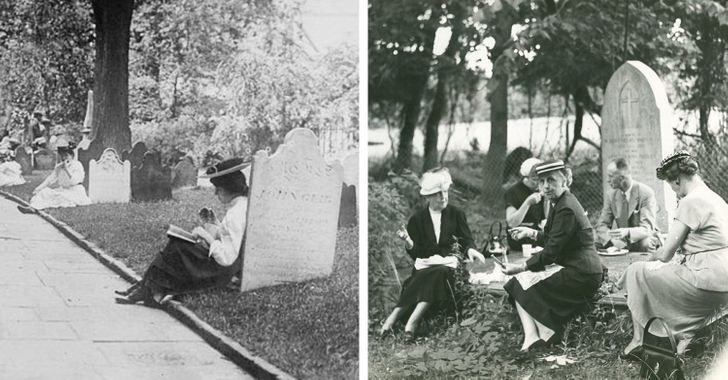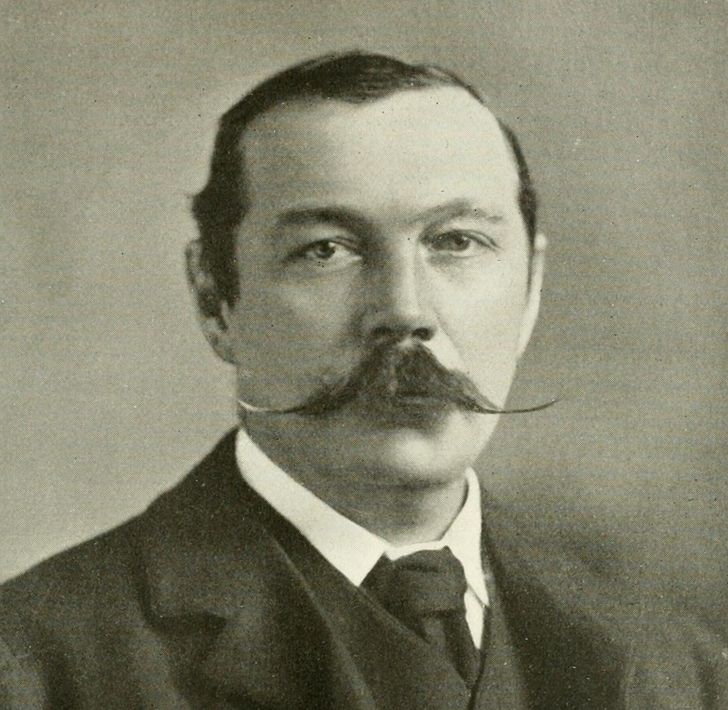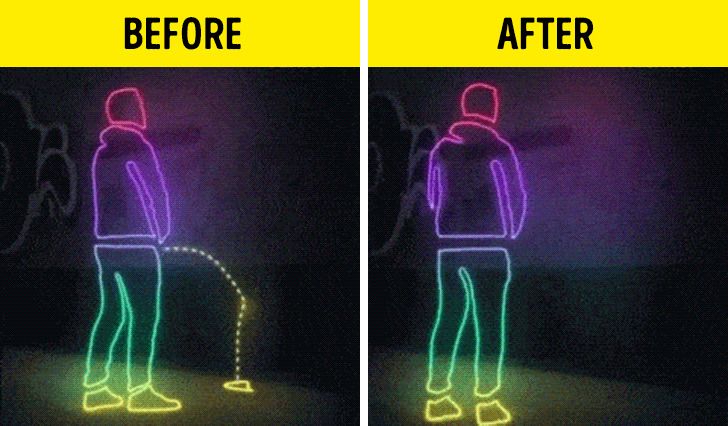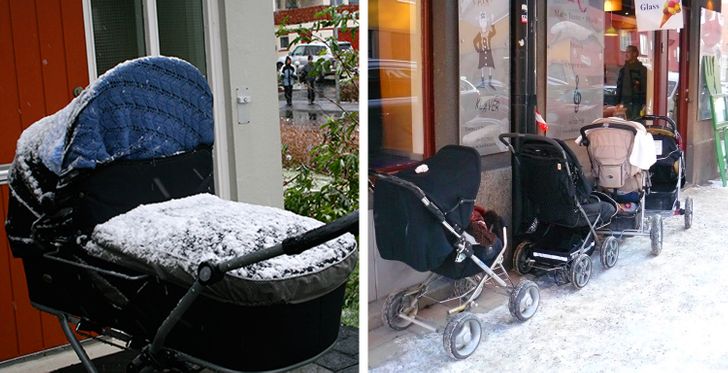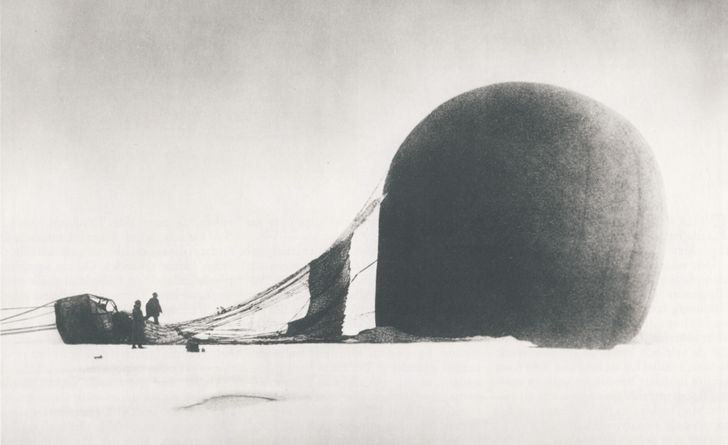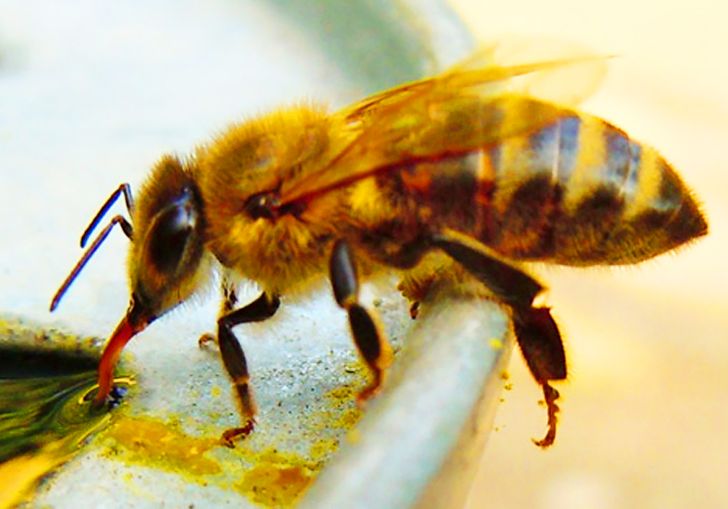Fascinating!
12 Facts That Surprise Better Than Any BBC Storylines
Did you know that on hot summer days, you can often see drunk bees? That one of the most popular fish dishes can cause terrible hallucinations? Or that the man who created Sherlock Holmes managed to solve a few difficult, real-life crime cases? If the answer to all these questions is “no,” then — read on, and prepare to be amazed!
Today, Bright Side presents a selection of incredible facts for you that will surprise even a hardened cynic.
1. When eaten, some types of fish can cause terrible hallucinations.
Salema porgy is a fish that, when eaten, might produce an effect comparable to that of LSD, which can last up to 36 hours. According to Clinical Toxicology magazine, there have been cases of people experiencing both auditory hallucinations (in the form of screams and shrieks) and visual ones (for example, one person described having to stop his car, because it suddenly became “surrounded by giant arthropods.”
But, despite all this, the Salema porgy is extremely popular along the Mediterranean coast and is used in preparing a variety of dishes. These delicacies are usually in demand at resorts in the French Riviera, Cyprus, Malta, Spain, and Italy.
2. In 1140, following a difficult siege, the German Emperor Conrad III captured the fortress city of Weinsberg. Angered by the residents’ prolonged resistance, he sentenced all the men in the city to death.
As for the women — he allowed them to leave and to take all the valuable belongings they could carry on their shoulders. Without thinking twice, the women discarded their valuables, choosing to carry their husbands on their shoulders instead. On seeing this, the king praised the women of Weinsberg for their cunningness and devotion. Because of this the male population of the city was spared as well.
3. In the past people used cemeteries, not parks, for recreation.
In 19th century Europe and America, public parks were still few and far between. So, people spent their leisure hours in other available green spots, like cemeteries. Back in those days, it wasn’t uncommon to see a woman reading a book while leaning on a tombstone, or a family having a picnic next to a picturesque crypt.
4. There’s a monument in the US that has written advice in 8 different languages on how to rebuild society after the Apocalypse.
In the state of Georgia there is a huge granite monument that was built in 1980. It contains instructions in 8 modern languages (English, Spanish, Swahili, Hindi, Hebrew, Arabic, Chinese, and Russian) and their shortened versions in 4 ancient languages (Akkadian, ancient Greek, Sanskrit, and ancient Egyptian) on how to create a decent society after the Apocalypse.
Inscribed on 6 granite slabs are 10 principles (or commandments), which tell of the importance of preserving life on Earth and respecting each other. In addition, the slabs contain directions on creating a compass, a calendar, and a clock.
5. Besides having his creation, Sherlock Holmes, solve hundreds of fictional crimes, Arthur Conan Doyle untangled 2 real-life criminal mysteries himself.
The adventures of Sherlock Holmes brought the writer ever increasing popularity. As a result, he began receiving letters with pleas for help in solving real crimes. Of all the (invariably petty) cases, only one attracted Conan Doyle’s attention.
In 1906, Sir Arthur Conan Doyle decided to prove the innocence of George Edalji, a man convicted of cattle mutilation. It took the writer only a couple of hours to refute the arguments put forward by the police and help the poor man to clear his name. And then, a few years later, Conan Doyle helped to acquit a person accused of murder.
6. The Vatican has the highest crime per capita rate in the world (1.5 crimes per person).
However, most of these crimes are petty thefts committed by tourists and pilgrims. The perpetrators often go unpunished since the city-state has no prisons and very few police officers.
7. In Hamburg, there used to be a big problem with drunk people relieving themselves in public places.
The residents of the city of Hamburg’s St. Pauli district got tired of drunk revelers peeing on walls. So, they found a very interesting solution to this problem by covering all the walls with hydrophobic paint that repels the liquid back to its source. The locals intentionally ’forgot’ to put up warning signs in some places, so that the drunks would learn their lesson the hard (or, should we say, “the wet”) way and never behave like that again.
8. In Reykjavik, parents often leave prams with children out in the cold, while doing some shopping or visiting a cafe.
People from other countries may consider this type of behavior irresponsible, but in Iceland, leaving your child out in the street on a frosty day is thought to be appropriate and beneficial. Warm clothes protect kids from the cold and they get the chance to breathe fresh air. Besides, crime rates are so low in this part of the world, that parents have no reason to worry about their little ones.
9. All the trains in Holland run on wind power.
Since January 1, 2017, all the trains in the Netherlands have been powered by wind energy. It is sufficient to make 5,500 trips and carry 600,000 passengers daily. Within one hour, a ’wind’ train can travel the distance of 124 miles without any emissions or excessive noise.
10. In 1897, 3 Swedes attempted to become the first people to reach the North Pole. They took off in a balloon, but crashed 65 hours later.
In 1897, Salomon Andree, the first Swedish aeronaut, set out on an expedition which involved flying a hydrogen-filled balloon from Svalbard to Russia or Canada, passing over the North Pole along the way. However, the balloon proved uncontrollable. It quickly lost its hydrogen and crashed into the ice just 65 hours after take-off.
33 years later, the expedition’s final camp was discovered by accident, along with Andree’s diaries. It turned out, that he and his fellow explorers had walked across many miles of drifting ice, without equipment or suitable clothing. They also managed to survive for weeks after the crash by hunting polar bears.
11. In some places in Europe, authorities fight the problem of illegal Christmas tree cutting by spraying pine and fir trees with fox urine.
Out in the cold the urine stays frozen, which means you can’t see or smell it. But as soon as the tree ends up indoors (or simply gets warmed up by the process of sawing), it begins to exude a terrible, tear-inducing odor that’s impossible to get rid of for days.
12. On hot days, you can often see drunk bees.
On summer days, high temperatures cause flower nectar to ferment. Having tasted the stuff, a bee gets inebriated, behaving almost exactly like a drunk person.
The bee’s flying might become unsteady and the insect may completely forget the way to its hive. However, even if the bee manages to find the road home, a special ’bouncer-bee’ won’t let it in until it sobers up.
Comments
Related Reads
Zac Efron’s Appearance a Few Days Ago Leaves Fans Shocked and Worried

Miley Cyrus Causes a Stir by “Leaving Nothing to the Imagination” as She Wears an Extremely Revealing Dress

Why I Refused to Give Up My Window Seat to a Mother With 2 Children

Model Lost Entire Lips in Pitbull Attack, And She Reflects on Her Recovering Journey

Sharon Stone, 65, Shares a Stunning Bikini Photo, But One Twist Completely Stole Her Thunder

Jennifer Lopez Sparks Controversy After Posting Candid Photos of Ben Affleck

«You Ain’t Got the Body to Pull It Off», Stunning Selena Gomez Deemed Too Big For Her Tight Dress

17 Designers Whose Work Will Attract the Wrong Kind of Attention

Jennifer Lopez Faces Backlash as Users Notice Something Unusual in Her Bikini Pics

A Detail Spotted on Salma Hayek’s Breasts Sparks Big Controversy, as She Celebrates 57th Birthday

Tom Cruise Deemed Unrecognizable in New Pics With Prince William, as Some Say He Had “Too Much Surgery”

Test: Find the Right Answer to 10+ Riddles as Fast as You Can


